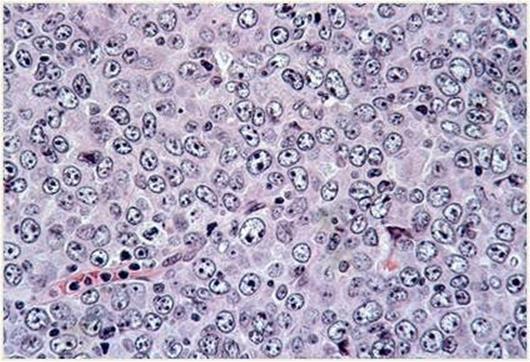
A cancer research team funded partly by The Terry Fox Research Institute has identified the best method for sequencing gene mutations across several of the most common forms of lymphoid cancer.
Dr. Christian Steidl (BC Cancer, Vancouver) led the groundbreaking study, published in The Journal of Molecular Diagnostics (March 2018). The paper established hybrid-capture sequencing as the method of choice for sequencing of actionable gene mutations in diffuse large B-cell lymphoma, follicular lymphoma, and chronic lymphocytic leukemia.
Lymphoid cancers are the fourth most common cancer in Canada, and incidence rates have steadily increased over the last 50 years. Fully implemented targeted sequencing-based assays in routine-diagnostic pathology laboratories are currently lacking in lymphoid cancer care, and clinical implementation of precision medicine approaches is needed in the form of novel biomarker assays.
In the present study, the team compared capture hybridization and amplicon sequencing approaches using tumour samples from lymphoma patients. A targeted sequencing pipeline using a 32-gene panel was developed for accurate detection of actionable mutations in tumour samples from the most common forms of lymphoid cancers. Hybrid-capture sequencing was found to be superior to the amplicon-based method when it comes to providing deep, more uniform coverage, as well as yielding higher sensitivity for variant calling. Further, at least one actionable mutation was identified in 91 per cent of tumours from 219 patients.
This discovery has the potential to change the way future testing in this field is done, as amplicon-based methods have been preferentially used given their short preparation time and small DNA input amounts. Importantly, the team has developed and optimized a targeted sequencing assay and demonstrated successful application of this assay to prospectively collected tissue and blood samples of patients treated at BC Cancer over a three-year period.
Looking forward, the scientists hope to implement these assays in accredited pathology labs and demonstrate clinical utility beyond pure outcome prognostication. This is a necessary step to offering sequencing-based biomarker assays to patients, in particular in the context of clinical trials testing novel cancer therapeutics and biomarker-driven clinical decision-making.
Study: Assessment of Capture and Amplicon-Based Approaches for the Development of a Targeted Next-Generation Sequencing Pipeline to Personalize Lymphoma Management
Authors: Stacy S. Hung, Barbara Meissner, Elizabeth A. Chavez, Susana Ben-Neriah, Daisuke Ennishi, Martin R. Jones, Hennady P. Shulha, Fong Chun Chan, Merrill Boyle, Robert Kridel, Randy D. Gascoyne, Andrew J. Mungall, Marco A. Marra, David W. Scott, Joseph M. Connors, and Christian Steidl.
Funding: This study is supported in part by the Terry Fox Research Institute grant 1061.